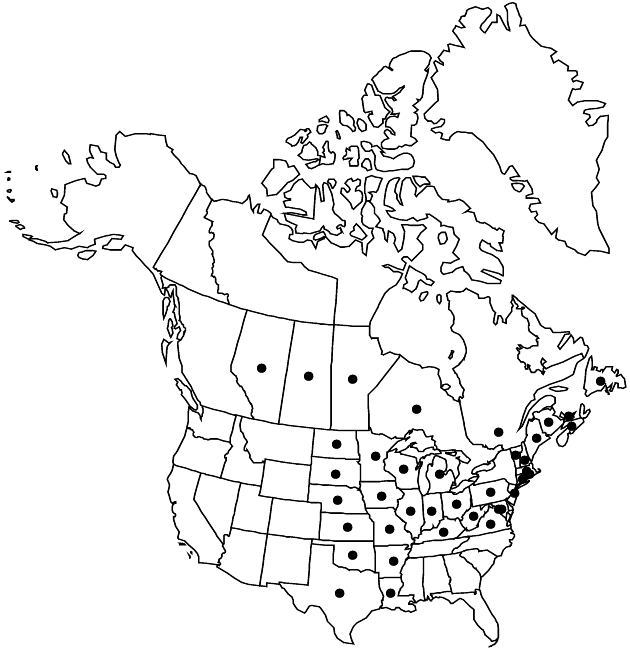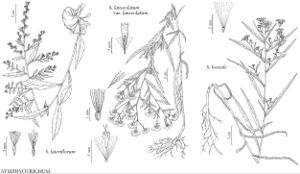Symphyotrichum lanceolatum var. lanceolatum
Stems stout to slender, glabrous or hairy in lines. Leaf blades linear to lanceolate or oblanceolate (reduced in arrays), margins entire. Heads 1–20+ per branch, sometimes congested distally on lateral branches, not subtended by foliaceous bracts. Involucres 3.6–4.8 mm. Phyllaries: outer 1.7–4 × 0.3–0.7 mm, inner 3–5.1 × 0.3–0.7 mm, outer 1/3–2/3 length of inner. Ray florets 17–47; corollas white to purplish or bluish, laminae 3.2–8 mm. Disc florets 16–38; corollas 2.9–5.2 mm, limbs 1.6–2.7 mm, lobes 0.6–1.6 mm. Cypselae 0.5–1.6 mm; pappi 2.7–5.2 mm. 2n = 32, 40, 48, 56, 64.
Phenology: Flowering Jul–Oct.
Habitat: Full sun to partial shade, margins of streams, edges of thickets, meadows, fields, ditches
Elevation: 0–900+ m
Distribution

Alta., Man., N.B., Nfld. and Labr. (Nfld.), N.S., Ont., P.E.I., Que., Sask., Ark., Conn., D.C., Ill., Ind., Iowa, Kans., Ky., La., Maine, Md., Mass., Mich., Minn., Mo., Nebr., N.H., N.J., N.Dak., Ohio, Okla., Pa., R.I., S.Dak., Tex., Vt., Va., W.Va., Wis., introduced in Europe.
Discussion
Variety lanceolatum is the northernmost variety, reaching the southern boreal region from Alberta to central Quebec and the island of Newfoundland. It is most variable morphologically and cytologically. The variety (and probably the others as well) is reported to hybridize with Symphyotrichum boreale, S. laeve, S. lateriflore, S. racemosum (documented by J. C. Semple and R. A. Brammall 1982), and S. puniceum (A. G. Jones 1989). Some of those hybrids need confirmation.
Symphyotrichum ×salignum (Willdenow) G. L. Nesom is of garden origin and is widely naturalized in central and northern Europe. It is the hybrid between S. lanceolatum var. lanceolatum and S. novi-belgii var. novi-belgii, and it may occur along the Atlantic seashore where the ranges of those two taxa overlap.
Selected References
None.
